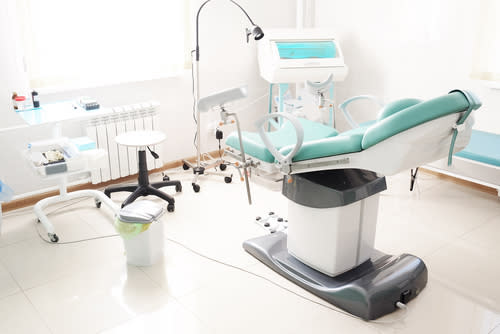Getting the BCRA gene test scared me—but so did not knowing
After losing my mom to ovarian cancer, I had always assumed that I too would be diagnosed with ovarian cancer at some point in my life—probably at an early age. She passed away when I was six years old, so my memories of her are blurred with the stories that other people tell. I was just so young.
The thought of getting cancer constantly took up space in my mind, leaving me on edge. It wasn’t a daily software that I ran, but it would creep up on me suddenly when I thought about my mom or saw a movie where a character had cancer.
In my early twenties, I considered getting genetic testing done.
Upon visiting the gynecologist, I would sometimes ask for medical advice on genetic testing—but I always got the same sort of response:
undefined
This response was a relief of sorts; it was a way to not have to deal with actually getting the testing done. I could put it on the back burner of my mind and life, right? Well, not so much.

Late last fall, after moving to a new city, I decided it was time to finally get the BRCA cancer risk genetic test.
Unsure of even how to pronounce this genetic test so unknown to me, I decided to do some basic internet research. BRCA tests for cancer risk caused by BRCA1 and BRCA mutations. These mutations can be inherited from either parent, and given my mom’s history of ovarian cancer—as well as my grandmother’s—it seemed like I would be a likely candidate.
Following a referral from my gynecologist, I found myself in the waiting room of a comprehensive cancer center one Tuesday morning. For some reason, I thought the room would be filled with other 20- and 30-somethings hoping to get genetic testing done.
I was wrong.
In the waiting room, I saw families, spouses, and cancer patients. Being there immediately brought back so many memories. I’m not even sure if I’d experienced them or just been told those stories—memories of my mom’s illness, and what it must have been like for her to be sick.
When my name was called, I met my genetics counselor and we sat in a room that didn’t feel medical at all. It honestly felt closer to a therapist’s office. Once I sat down with my counselor, I immediately felt at ease. During our two-hour meeting, she explained what the BRCA test was and the different types of genetic mutations that could occur. As we reviewed my family medical history, the counselor reminded me that though I might receive certain results, nothing was certain.
Every appointment is a chance to have an open dialogue with your doctor. Download our conversation guide: https://t.co/I83lfOlRIC pic.twitter.com/u2ZLtF5DuB
— beBRCAware (@beBRCAware) February 9, 2017
Halfway through the meeting, she asked how I felt about the testing itself, on a more personal level. I immediately burst into tears. I knew I needed to do get the test done, not only for my own peace of mind and health, but so other family members could know as well.
I was scared of what the results might be.
And I felt dumb for being scared when all I had to do was spit into a cup. But the entire experience carried a ton of weight.
So many thoughts raced through my mind: What were the symptoms of ovarian cancer? Would having it impact the possibility of having kids? Did I want kids? And, of course, would it all even matter if I had minimal luck with dating?
While the counselor did her best to answer my questions, she wanted to make sure I was okay to go through with the test. Though it was a morning full of exhaustion and tears, I knew I was ready. She handed me a saliva sample kit, which was very similar to the experience of 23andMe. Twenty minutes later, I was done—and I would have to wait a month for the results.
In the days leading up to finding out my results, there was an aching fear in my body. Being in limbo is always scary—but then so is the unknown. My overactive imagination certainly didn’t help.
What's your reason to #beBRCAware? pic.twitter.com/tuZmvNQI01
— beBRCAware (@beBRCAware) February 6, 2017
Sitting between my genetics counselor and a close family friend, I was finally ready to hear the outcome of the test. I was convinced that I’d be diagnosed with either a genetic mutation or would be told that I had ovarian cancer.
Needless to say, I was completely surprised: I had none of the genetic mutations I was tested for.
I cried in relief—and also out of shock. I had only expected a negative outcome, and honestly didn’t know what to do with myself.
This doesn’t mean that I will never get ovarian cancer, but it does mean that the risks are much lower than they would be if I tested positive for a genetic mutation. It put so much into perspective, while also relieving a huge amount of worry from my life. I feel incredibly lucky and happy with my choice to get this testing done. I miss my mom every day, and now I can let go of that specific anxiety and move forward, taking care of my body in a more intentional way.

